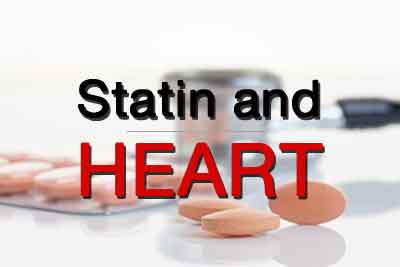- Home
- Editorial
- News
- Practice Guidelines
- Anesthesiology Guidelines
- Cancer Guidelines
- Cardiac Sciences Guidelines
- Critical Care Guidelines
- Dentistry Guidelines
- Dermatology Guidelines
- Diabetes and Endo Guidelines
- Diagnostics Guidelines
- ENT Guidelines
- Featured Practice Guidelines
- Gastroenterology Guidelines
- Geriatrics Guidelines
- Medicine Guidelines
- Nephrology Guidelines
- Neurosciences Guidelines
- Obs and Gynae Guidelines
- Ophthalmology Guidelines
- Orthopaedics Guidelines
- Paediatrics Guidelines
- Psychiatry Guidelines
- Pulmonology Guidelines
- Radiology Guidelines
- Surgery Guidelines
- Urology Guidelines
Statins associated with higher risk of GI haemorrhage finds study

Users of Statins have a higher risk for gastrointestinal haemorrhage than other chronic medication users, reports a new study published in the American Journal of Cardiovascular Drugs.
More than two -thirds of Americans with cardiovascular disease use statins, which have documented bleeding effects independent of their cholesterol-lowering activities. However, there is no clear evidence regarding the association between statin use and gastrointestinal hemorrhage.
Ashley and associates conducted a study to investigate the risk of gastrointestinal hemorrhage in statin users.
The researchers did a retrospective cohort study using data from the Truven Health MarketScan® Research Database (2009–2015) to investigate the risk of gastrointestinal hemorrhage amongst statin users aged 30–65 years at the initial prescription claim.
Read Also: Statin use over long-term reduces risk of osteoporosis : Study
Statin users and a group of negative controls (i.e. other chronic medication users) were followed until first gastrointestinal hemorrhage event (both inpatient and outpatient, as well as restricted to inpatient), and were censored at treatment discontinuation, disenrollment from coverage, or the end of the study period.
Key study findings:
- Statin users had an elevated risk of gastrointestinal hemorrhage, which was especially apparent in the first year of treatment.
- The risk of gastrointestinal hemorrhage leading to hospitalization was even higher.
- High-intensity statin users had a greater rate of gastrointestinal hemorrhage than moderate-intensity users.
The study concluded that statin users aged 30–65 years have an increased risk for gastrointestinal hemorrhage and these findings are important when treating patients at a high risk for bleeding events.
For reference log on to https://doi.org/10.1007/s40256-018-0301-4

Disclaimer: This site is primarily intended for healthcare professionals. Any content/information on this website does not replace the advice of medical and/or health professionals and should not be construed as medical/diagnostic advice/endorsement or prescription. Use of this site is subject to our terms of use, privacy policy, advertisement policy. © 2020 Minerva Medical Treatment Pvt Ltd